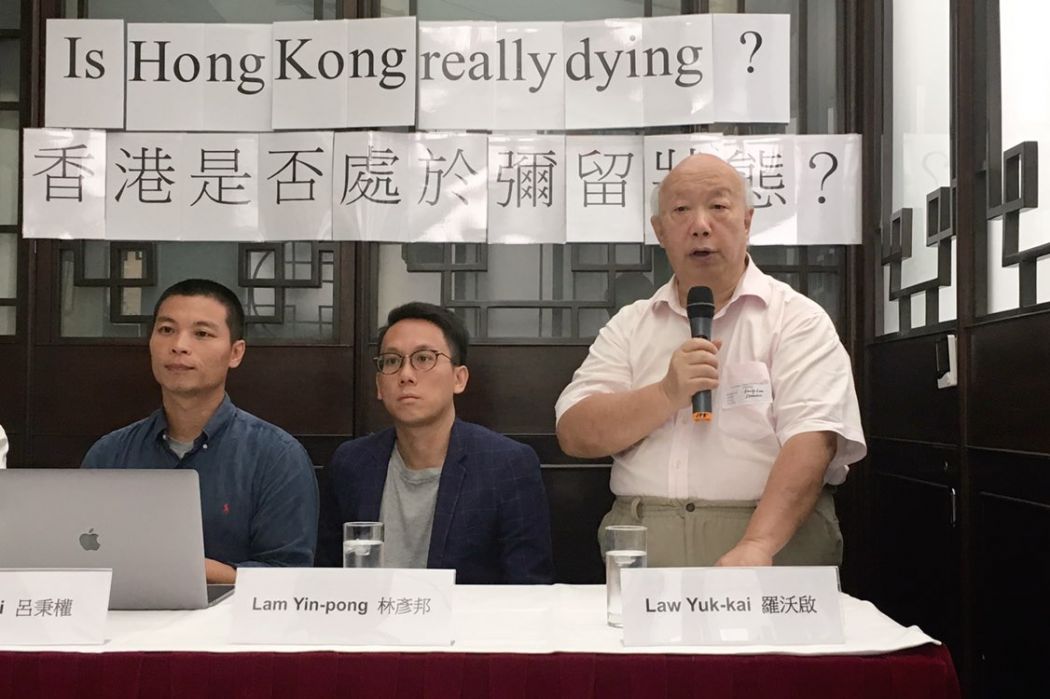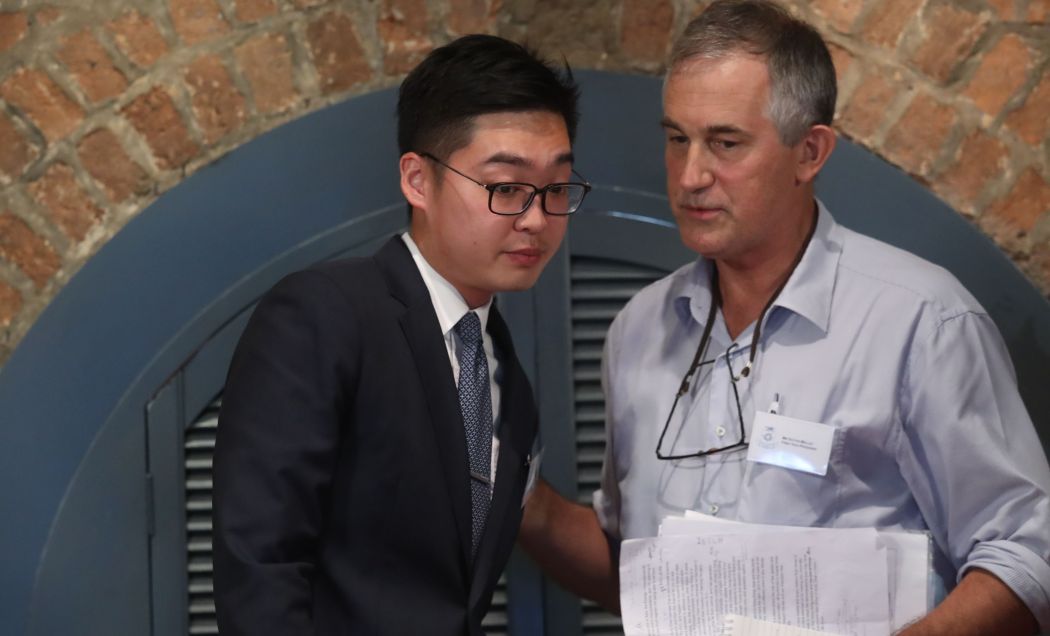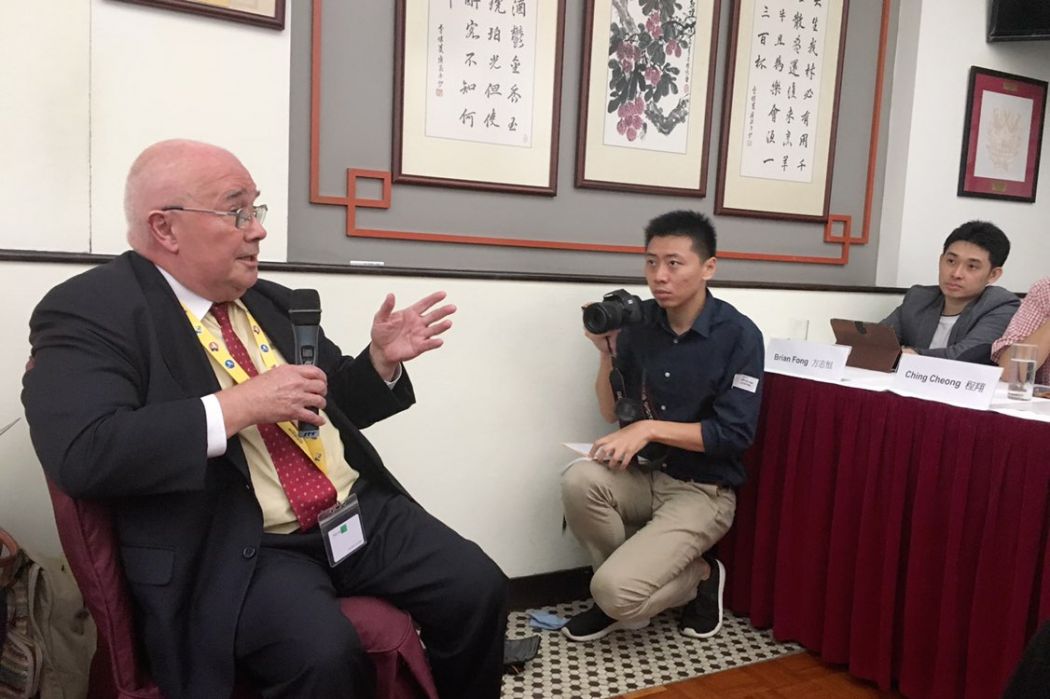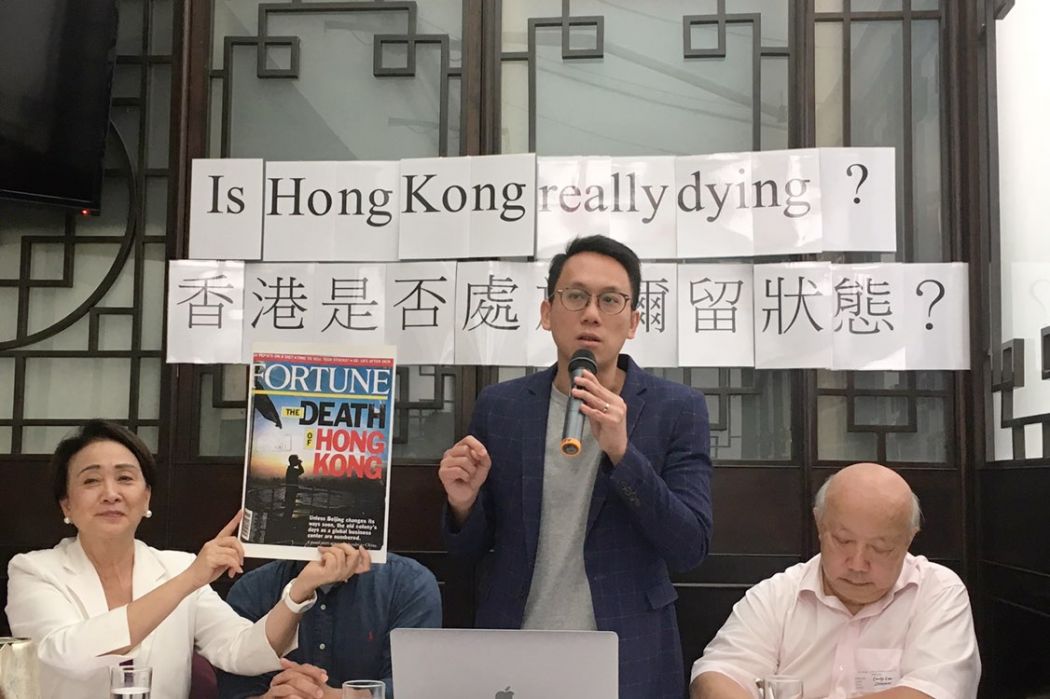Hong Kong’s international community has realised that the city has a “real problem,” according to a human rights activist speaking at a seminar on Tuesday, as several countries contemplate changing their policy on the city amid mounting pressure from Beijing.
Human Rights Monitor Director Law Yuk-kai was speaking at a seminar “Is Hong Kong really dying?” hosted by former lawmaker Emily Lau at the Foreign Correspondents’ Club (FCC). The event was attended by consuls from US, UK, Australia, Canada and the Netherlands.
At a United Nations Human Rights Council hearing on China last week, twelve nations gave recommendations on Hong Kong’s human rights and freedoms, which was unprecedented.

“I think the international community has realised that Hong Kong has a real problem. The fact that Mr. Mallet has been denied a visa [shows that] not only local media is put under tremendous pressure. International media here is also facing those political measures adopted by Beijing,” Law said. Law said the Chinese and Hong Kong governments do not have to follow these recommendations.
Victor Mallet, the Financial Times’ Asia news editor, was denied a work visa extension after hosting a talk by pro-independence activist Andy Chan at the FCC, and was given a seven-day tourist visa when he returned to Hong Kong from an overseas trip. He tried to reenter Hong Kong as a tourist last week but was barred.
Law also noted the changing climate of doing business with China. “Now they know that China is not simply doing business, they are doing a lot of infiltration, a lot of undermining of basic values, institutions… Communist Party cells working in various countries, in various campuses,” Law added. “In terms of these backgrounds, a lot of Western democracies are beginning to rethink whether there should have a more rigorous policy on Hong Kong.”

Education University political scientist Brian Fong, another speaker, said that Hong Kong is still very important to China economically, as over half of China’s foreign direct investment passed through Hong Kong in the past ten years.
“China’s economy cannot survive without Hong Kong,” he said. “For Beijing’s leaders, the best scenario is to maintain some form of ‘One Country, Two Economic Systems’ in Hong Kong, while at the time putting ‘One Country, Two Political Systems’ under control.”
“We are at the forefront of geopolitics. We are facing a cold war between China and the US,” he said.

Also speaking at the event was political commentator Ching Cheong, who as early as the 1990s pointed at the threat of “mainlandisation” as being Hong Kong’s biggest.
“Post-1997, the source of political power switched from London to Beijing,” he said. “What I predict is not a sudden death of Hong Kong, but a gradual decline.”
Ching mentioned cases including the kidnapping of Hong Kong bookseller Lee Bo, and the recent mobilisation of the Chinese Army to clean up mountain areas, which he called a “blatant violation” of Chinese law regulating the garrison in Hong Kong. He also said a Communist Party committee meeting was held recently for mainland judges visiting the City University of Hong Kong.
“All these are subtle erosions of the very fabric of Hong Kong society,” he said.

Bruce Lui, senior lecturer of journalism at Baptist University, said Hong Kong faces pressure to enact the national security law within five years.
In so doing, he pointed to a report made by Xi Jinping at the 19th Communist Party Congress last year, in which the president asserted that Hong Kong had a constitutional duty to defend national security.
“[The report] did not tell [Hong Kong] to wait for an unlimited amount of time,” Lui said.
Also speaking at the event was Hong Kong Journalist Association Executive Committee member Lam Yin-pong, who said that though Hong Kong’s media landscape was diverse, people here do not necessarily enjoy freedom of speech.
“We don’t know where exactly that red line is. Nobody including Carrie Lam knows exactly where the red line is,” he said.
He said no-one can tell if journalists have stepped on a red line: “What will happen is self-censorship and chilling effect.”

Looking forward, Fong said Hong Kong can look to the example of Catalonia, which saw great suppression under Spanish dictator Francisco Franco.
“Every Catalan leader was either killed or exiled, their language Catalan has been banned in schools and all public places. Was Catalonia dead at that time?” he said. “The Catalans never died. They still resisted, they went underground.”
Democracy was reinstated for Catalonia after Franco died: “I am sure you will agree that Hong Kong’s situation now is still much better than Catalonia under Franco… Otherwise we could not speak here right? If Catalonia did not die under Franco, how can we say Hong Kong is going to die?”
